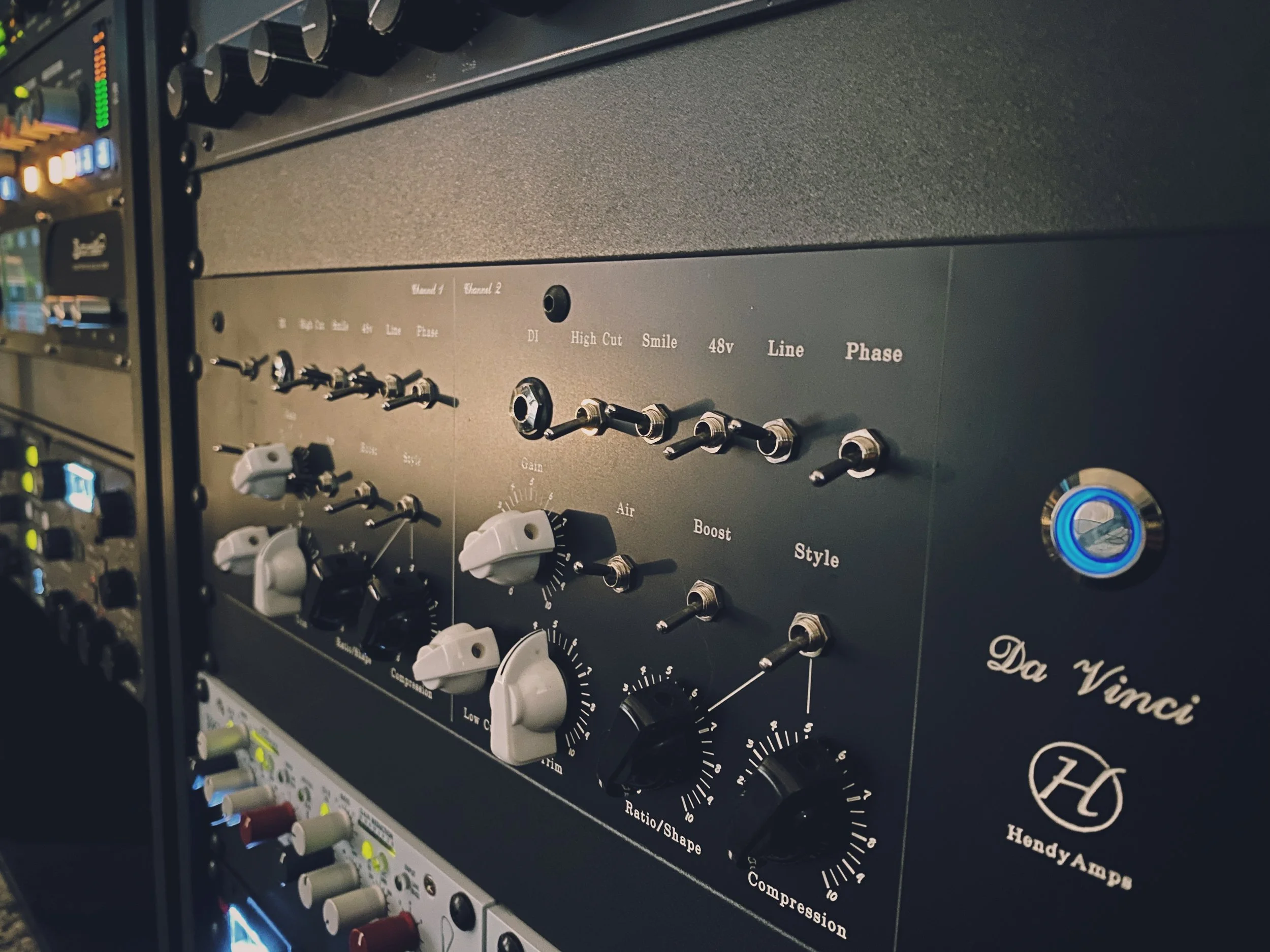Frequently Asked Questions
“Taylor brings loads of experience and talent to projects. But what makes him really stand out is the fact that when he says yes to your project, he saying yes to you as an artist and creative. He won’t just do the job, he’ll be in it with you cheering you along and giving you his best. Loved working with Taylor. He’s become the guy I trust the most with my personal projects and the guy I send others to get pro mixes.”
Making music can be complex. Here's a jump start on getting answers to some questions you might have about mixing, in no particular order:
What is mixing?
There are many possible definitions, but I think this one captures the essence of the process well: Mixing is the process of combining and balancing all of the tracks/parts of an audio production into a single stereo presentation of the song that is artful and compelling. Mixing requires both technical skill and creativity to achieve a great result that emotionally captures the vision of the artist for the song.
how do i deliver my files?
I prefer file transfer over Dropbox, but artists/producers occasionally send me tracks via WeTransfer, Box, or other content-sharing services. The important part is that each of your tracks is exported from the same starting point inside your recording session (generally the start of the session) as a full-quality file (meaning a WAV file at the bit depth and sample rate you recorded, not a down-converted format like mp3). If you send files this way, the tracks will stay in sync with each other when I pull them up in my mixing software. Even more specific instructions for mix prep and file delivery can be sent your way once you book a project.
can you make me sound like <insert your favorite artist here>?
Generally, my first response to this question is, "does your music already sound like that artist's music?" The way you engineer, produce, and arrange your songs has a profound impact on the way your final mix sounds. Ideally, every part of the recording process should be pushing toward the artist's vision, and a mixer's job will be to creatively sculpt and enhance what is already there into the best possible version of that vision. We don't always live in an ideal world, though, and the good news for you is that if you are open to production adjustments being made in the mixing process, there is still a lot of possibility for moving things in the direction of your vision. I generally encourage artists to go deeper than just referencing a band or a song - spend some time listening and analyzing what it is exactly about your references that inspires you. If you can discover and communicate that, it will enable me to zero in on exactly what you love about another artist's work and try to incorporate it in a way that stays fresh and original rather than a simple imitation. If that sounds intimidating - don't worry. The mixing process is an ongoing dialogue that we will tackle together. I'll keep asking you questions to help you find what you're looking for.
how many rounds of revisions do i get to make to my mixes?
I don't want to sign off on a mix unless you love it, so I don't put a limit on the number of mix revisions. In general, I've found that most mixes are completed around version 3. The progression generally goes something like this: mix 1 is my reaction to how the music strikes me as a fresh listener - combined with any references or conversations we've had before getting started; mix 2 is where collaboration really becomes a huge part of the mixing process - we work together to find what parts of mix 1 captured your vision, and work together to make the right adjustments on things that need to be changed; mix 3 is generally very small amounts of fine-tuning to ensure that we've caught every little detail. Every project is different, though, and I won't be satisfied until you love what you're hearing.
how do i communicate my mix tweaks?
I love technology. For most of my time as a mixer, all of the tweaks would have to happen with the artist in the room, or via long lists of changes in an email that could often be mis-interpreted. Today, though, I am so excited to be able to offer artists all over the world the opportunity to offer real-time feedback of mixes while listening on speakers that they know and feel comfortable with. Artists are able to stream my mix session in real time from any internet browser-capable device as I am making changes, and we are able to quickly and efficiently talk through changes, try new ideas, and dial things in to exactly the place they want to go. This ability has been a game changer in terms of ensuring clear and effective communication. Oh, and it's really fun. Additionally, if you are in or would like to travel to the Austin area, attended sessions can also be arranged.
what services do you offer? what exactly will you deliver as a final product?
Mix delivery can include any/all of the following: full-quality WAV files of the final approved mix, a vocal up mix, an instrumental mix, an a capella mix, and a TV mix. All of these will be delivered at an appropriate level to be sent on to mastering.
For a small additional hourly fee, stems can be printed of each individual track (or tracks can be grouped to save time). This is common for live playback and re-mixers.
Although I generally think it is best for all editing to be handled by the producer or engineer in the recording phase, I do offer drum editing, vocal tuning, and other small editing/time-correcting tasks for an additional fee.
I've seen you credited as a producer - do you offer production as well?
Hey, thanks for noticing! I have been producing artists even longer than I've been mixing. Because of the amount of time and investment that goes into being a producer, my production schedule has limited availability each year, but I am always looking for artists that want to partner together to make something special. If you think that might be you, please fill out the contact form and let me know that you're interested in production. We'll start a conversation and see if it would be a good fit.
do you take care of mastering or will i need to get that done somewhere else?
If I can, I try to avoid mastering my own mixes. I'm a firm believer in the power of collaboration and a fresh set of experienced ears. For example, every song on this site was mastered by Bob Boyd - a mastering engineer who was worked on GRAMMY award winning and nominated albums. His experienced ear was an invaluable asset in fine-tuning and polishing the songs for their final release. Mastering is a very subtle process - often working in half decibel increment changes (sometimes even finer), and having a fresh set of ears is what makes that level of detailed adjustment possible. There are mastering engineers available to work at a wide variety of price-points, so it's usually possible to find a great fit for the genre and the budget. If there is truly no extra money in the budget, I am able to deliver a version of the mix at a commercial volume level for distribution. But I strongly caution every artist - don't spend all of the time, money, sweat, and tears to get through the mixing process and give up on the last part! A properly mastered record is a worthwhile investment that you won't regret.
do you mix with analog gear? Or are you exclusively "in-the-box"?
I've spent time working with both an analog-hybrid and ITB mixing, and have access to both methods. They both have great traits, but my most frequent and favorite way of working right now is to do analog-hybrid mixing. The most important thing about a mix, though, is always how it sounds and communicates the song to a listener. I think that can be achieved in a beautiful way regardless of working ITB or with analog gear.
where can i get the best tacos in austin?
Is there really an answer to this? I'm not sure. But the Al Pastor and Migas at Vera Cruz have never done me wrong.
i'm tired of reading a q&a - I just want to start my project. what do i do?
I've got a button for you:
“What I really found special when working with Taylor was his communication all throughout the process. He was very thorough and asked questions to get clarification. He was very timely in responses as well. This saved a ton of time and we felt like we were on the same page from the beginning. ”

